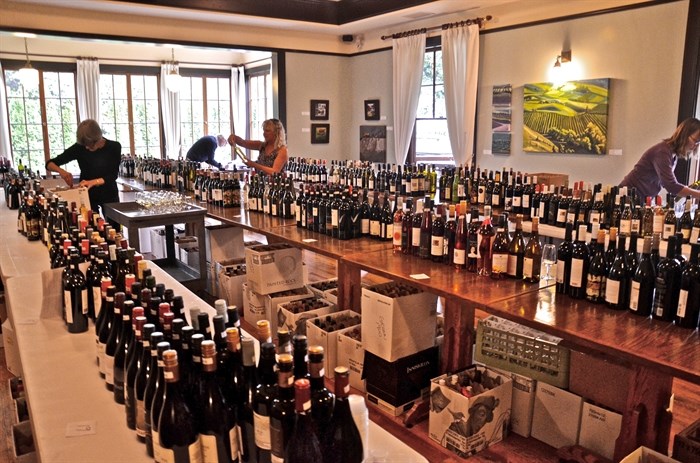Okanagan wine makers seeking options as federal taxes suddenly rise

A change in a key federal tax policy could add 50 cents to the price of every bottle of 100 per cent B.C. wine.
But wine makers are looking for other options.
“What we’ve asked is for the government to work with us to come up with some kind of program,” B.C. Wine Institute Executive Director Miles Prodan told iNFOnews.ca today, July 30. “Every country has subsidy programs, including Australia.”
Last Friday, the federal government announced that wines that are 100 per cent Canadian made will no longer be exempt from the federal excise tax.
Prodan described excise taxes as “sin” taxes put on things like alcohol and cigarettes – but also gasoline – to discourage people from buying them.
About 15 years ago, the federal government granted the exemption for Canadian made wines but other countries that sell wine into Canada objected, saying it gave Canadians an unfair advantage.
Finally Australia – which is the fourth largest seller of wine in Canada – filed a complaint with the World Trade Organization.
Seeing it was going to lose that battle, the Canadian government negotiated a settlement to get rid of the tax in two years, Prodan said.
That gives the industry time to try to negotiate subsidies or other programs that will offset the cost increase rather than having to pass it on to consumers.
What that will look like is still to be determined but, for example, there is a $500 million export initiative for Australian wines or there may be some marketing money the industry could access.
Still, $6 a case is a significant hit for an industry that operates on very small margins, he noted.
About half of the current producers opened after the tax exemption was given so their budgeting model never took the cost of the tax into account.
The industry has been doing well in recent years with the domestic share of the wine market growing proportionately faster than the industry as a whole, Prodan said.
That has changed recently. As a result of COVID-19 consumers seem to be turning to cheaper imports rather than the more expensive domestic varieties – another reason not to pass on the tax.
“Some media coverage is saying it’s going to hit the consumer but that remains to be seen,” Prodan said.
To contact a reporter for this story, email Rob Munro or call 250-808-0143 or email the editor. You can also submit photos, videos or news tips to the newsroom and be entered to win a monthly prize draw.
We welcome your comments and opinions on our stories but play nice. We won't censor or delete comments unless they contain off-topic statements or links, unnecessary vulgarity, false facts, spam or obviously fake profiles. If you have any concerns about what you see in comments, email the editor in the link above.


